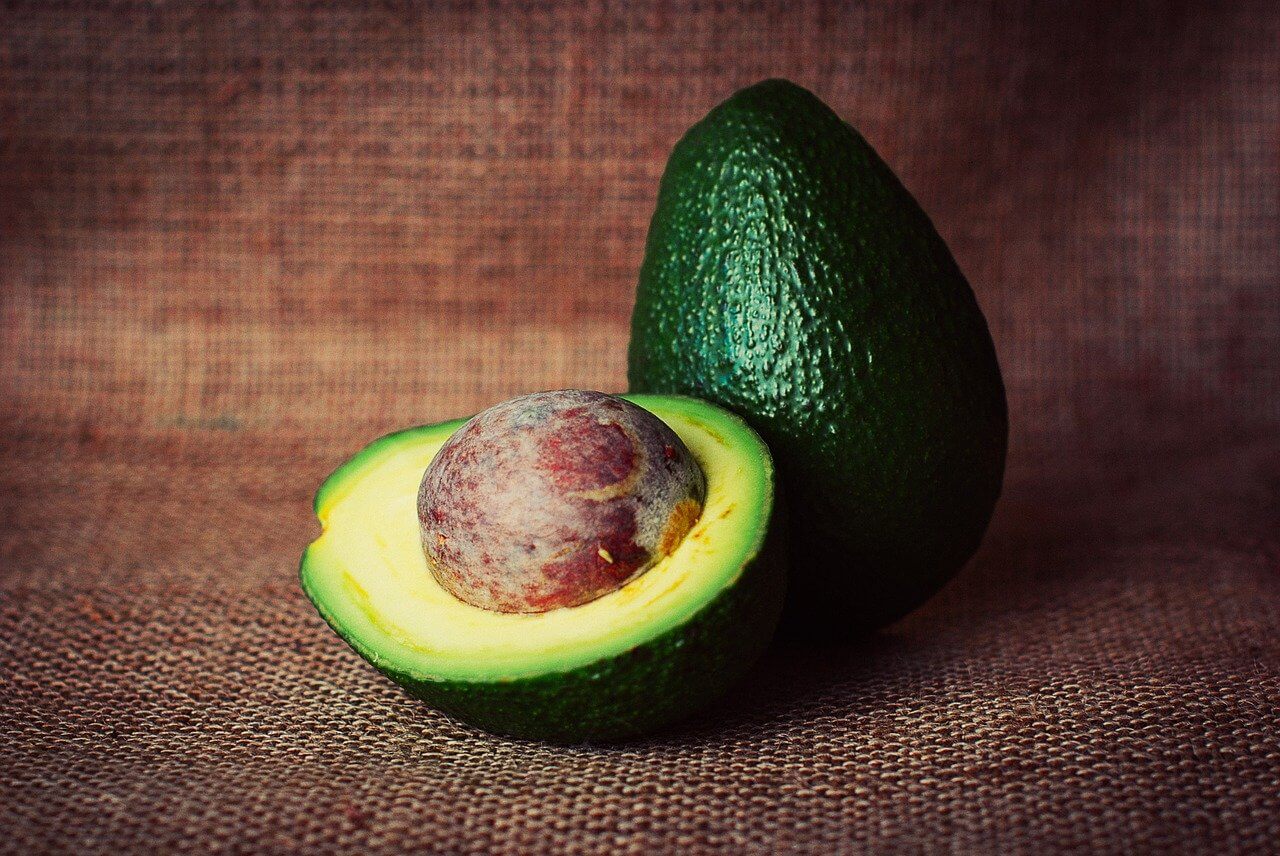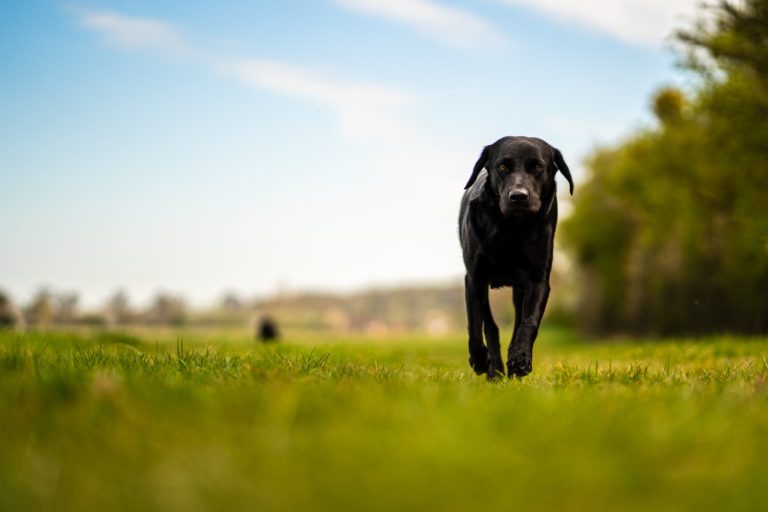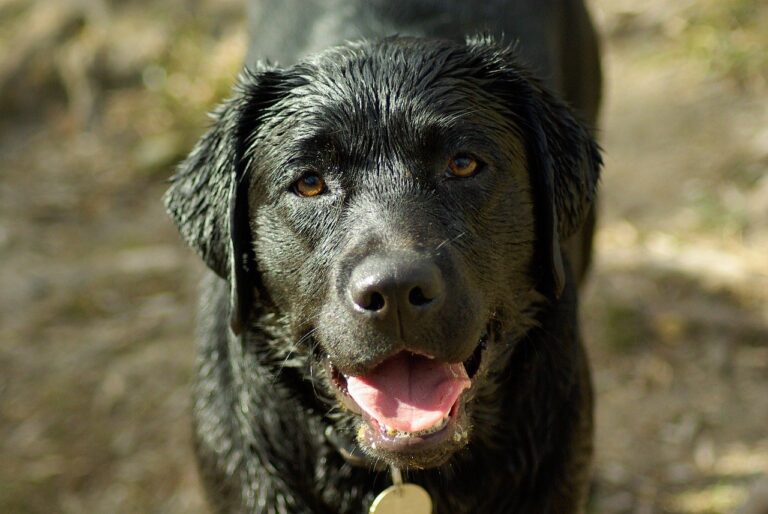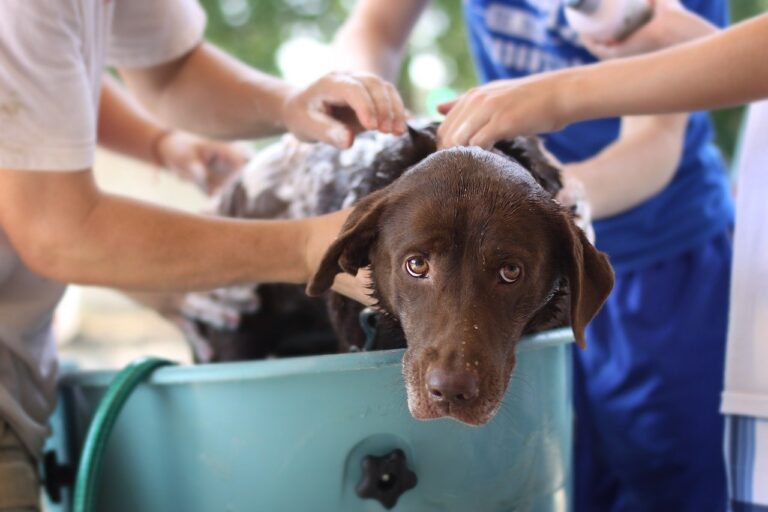Did you know that avocados can sometimes cause serious health problems in dogs? While delicious for humans, in certain situations avocados and dogs can be a very dangerous combination.
Here at Labrador Wise, we had one such dangerous encounter with an avocado incident, which nearly killed one of our beloved Labs in 2019.
One of the Labs of Labrador Wise nearly died from ingesting an entire avocado, including the pit.
He scooped it out of the trash can without permission, and we had no idea at the time that he’d ingested it, or that avocados and dogs could be a dangerous combination.
We’re going to go over why avocados can sometimes be a problem for dogs, what you can do to prevent it, and how to act if you suspect your dog is ill from one.
Avocados and Dogs: A Toxic Combination
Avocados are amazing and delicious for humans, but as with other certain foods like grapes and onions, can actually cause harm to your furry family member.
(This article may contain affiliate links. As an Amazon Associate I earn from qualifying purchases. Learn more)
While humans love avocados for their delicious taste and health benefits, there are some things to know about them if you have a dog in your life.

Why Are Avocados Potentially Harmful to Pets?
Avocados contain an ingredient called persin, which is a fungicidal toxin. It’s primarily located in the leaves, the pin, and the skin, but also found to a smaller degree in the flesh of the fruit (the delicious part you normally eat).
If you live in a climate where you can grow avocado plants, you should be careful that your Labrador doesn’t get near your plants or nibble on the leaves, because persin is more concentrated there.
Persin exposure in dogs can cause the following reactions:
- Vomiting
- Lethargy
- Diarrhea
- Refusal to eat
- Withdrawing
In severe cases, you might have an obstruction from the avocado pit, or severe illness and death.
The reactions for other types of pets to persin, such as birds, horses, and goats, are even more severe and dramatic.
One of the challenges with avocados and dogs is that there’s no safe limit to know when you reach toxicity. So some dogs might have a higher or lower tolerance to persin, and you don’t know what amount is safe for them to ingest.
Our Lab who was exposed to persin is a solid, healthy American Labrador of almost 100 lbs.
Ingesting the seed (pit) and skin of half of a normal avocado was enough to cause a veterinary emergency and severe distress. It didn’t take an extremely large quantity of avocados to cause a medical emergency in a large breed dog.
What Can You Do to Prevent a Problem?
The best thing to do for prevention is to keep your avocados away from sources in your home that your Labrador has access to. This can include the kitchen, but also the trash, and yard (if you happen to have avocado plants growing).
Be aware if your neighbors have avocado plants as well, in case your Lab might have access to them.
Some playful Labradors are opportunists and are prone to sneaky an occasional sniff out of the trash can (as our boy did).
Other times Labs are known for “counter-surfing,” where they climb up on counters to see what food is available for snacks.
Sometimes owners will give their dogs avocados without knowing that they are even possibly toxic to their pet.
The best strategy is to keep avocados away from your Labrador. Either keep them in a cabinet or pantry that your Labrador does not have access to.
Keep the trash can out of your Lab’s reach and don’t allow them access to that area at all. Invest in a dog-proof or resistant trash can, and keep it out of your Lab’s reach.
Our Labrador got into the trash after an avocado was thrown away. He was able to eat the pit and half of an avocado skin.
He had no immediate signs of distress and we weren’t aware there was even a problem, until hours later when the issues began.
The signs of avocado toxicity in our Labrador were severe and repeated vomiting, refusal to eat, lethargy, and avoidance.
He became exhausted and seemed to have trouble walking. Another sign we observed was that he wouldn’t interact with anyone and was hiding as if he was in significant distress.
We were able to get him immediate medical care, and with the help of our great veterinarian, he was treated and stabilized.
It took him several days to respond and behave normally again, and the vet bill was almost $1000. So learn from our mistakes and keep avocados away from curious Labradors!

After this incident, we changed the way we handle avocados in our household. They are now kept secure from access by any Labs, including when the skin and pit are being thrown away.
Be sure to educate anyone else in your house and those who might be caring for your dog that avocados and dogs together can pose a potential problem.
What to Do If You Suspect Illness in Your Dog From an Avocado?
The first place to start is your veterinarian’s office. Tell the staff that you suspect avocado ingestion and what symptoms you’ve noticed in your pet.
They will be the best resource to guide you on the next steps to take.
There’s also an ASPCA Poison Control Hotline in the United States that you can reach out to. They may charge you a consultation fee.
Depending on your pet’s symptoms, we would suggest starting first with your vet. They may be able to guide you more rapidly than other resources, but we want you to know what’s also out there.
Summary of Avocados & Dogs: A Toxic Combination
We hope that your Labrador never experiences a medical emergency involving a toxic food item.
If you share a home with Labrador Retrievers or any other kind of wonderful dog, we know you want to keep them safe and avoid medical crises.
We hope that with a little advance preparation and wisdom you’ll learn that avocados and dogs can sometimes have catastrophic results.
Learn from our curious Lab’s avocado incident and be better prepared to prevent it from happening in your home! For more tips & resources on caring for your dog, check out our Health & Care section.







